
Each week at Rogerebert.com, we try to present reviews of 13 new movies on our homepage ranging from blockbuster studio movies to documentaries, foreign films and independent feature films. When possible, we also present relevant reviews from the archives of Roger Ebert. Each of our reviewers has a style and personality of his or her own. In addition to our regular film critics we have occasional contributors and our Far Flung Correspondents who write articles or reviews from their own unique perspectives.
In order to get to know our regular reviewers better, we are running a series this week called "Who's Who in Reviews." Each day, we will present profiles of two critics along with a listing of all of the reviews they have written in 2015. Today we will start with our two editors: Brian Tallerico and Matt Zoller Seitz. We will continue the rest of the week with Glenn Kenny, Godfrey Cheshire, Christy Lemire, Susan Wloszczyna, Sheila O'Malley, Odie Henderson, Simon Abrams and Peter Sobczynski. We hope you enjoy getting to know our reviewers a bit better.
Matt Zoller Seitz has reviewed such films as "Avengers: Age of Ultron," "Ex Machina," "Inside Out" and "Jurassic World." His Twitter handle is @mattzollerseitz.
QUESTIONNAIRE:
1. Where did you grow up, and what was it like?
I grew up mostly in Dallas, Texas, except for a five-year stretch in Kansas City, Kansas, where my brother and I lived with grandparents while my parents were getting a divorce. I guess technically I'm a New Yorker, because as of this August I will have lived there twenty years, but my accent is Texas plus Kansas. Kansas City is a golden, nostalgic haze for me. Dallas I remember as very flat and hot, and not a good place to live if you're an insomniac, as I am, because there aren't a lot of places to get a good meal after midnight.
2. Was anyone else in your family into movies? If so, what effect did they have on your moviegoing tastes?
My dad likes movies a lot, and he used to take me to movies whenever he would come to visit me in Kansas City. My mom and stepfather were into movies as well. We watched a lot of stuff on VHS. They had atypical taste, which is to say, good taste. They liked movies from a lot of different eras and didn't get too hung up on what was appropriate for me at a certain age. I come from a family of jazz musicians so the standards there are different from most families.
3. What's the first movie you remember seeing, and what impression did it make on you?
The first movie I have a very strong memory of seeing in the theater was "Star Wars," in 1977. I know I saw a lot of things in theaters before then, but that was the first movie I saw where people cheered loudly and often. That made an impression on me.
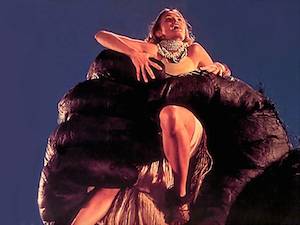
4. What's the first movie that made you think, "Hey, some people made this. It didn't just exist. There's a human personality behind it."
That would be the 1976 remake of "King Kong," which I think I saw when it came out, but I didn't appreciate until I ordered The Making of King Kong through the Scholastic Book Club the following spring. It was filled with pictures of the production, and it showed how they made all the models and the creature suit and the sets. I'm pretty sure I read that book around the same time that I saw "Star Wars," and the two experiences might've joined together in my mind to set me down the course that eventually ended up in my being a critic.
The first movie that I realized was directed, in the sense of "showing the personality of a particular person," was "Raiders of the Lost Ark," and I wrote about that realization here, in a piece at my first film blog, The House Next Door.
5. What's the first movie you ever walked out of?
"Hot Stuff," starring Dom DeLuise. I must have been ten or eleven. I went to see it by myself, at a theater near my house. I didn't know much about movies at that point, but I knew that I thought it was terrible. I think I lasted 20 minutes.
6. What's the funniest film you've ever seen?
"Raising Arizona." It still makes me laugh.
I fell madly in love with the girl who would later be my first serious girlfriend while watching that movie. Seeing her laugh so hard that she actually fell to her knees and held onto the seat in front of her is what did it for me. Seeing somebody give themselves over to a movie in that way is really something.
7. What's the saddest film you've ever seen?
Probably "Boys Don't Cry." That movie is so sad that not only do I not want to see it again, I don't even like to think about it.
8. What's the scariest film you've ever seen?
"The Exorcist." I saw it on ABC when I was about 11. I literally had trouble going to sleep for months. I was afraid a demon was going to possess me. And this was the edited version where Regan is telling the priest that her mother sews socks in Hell.
9. What's the most romantic film you've ever seen?
"The New World." The way that both Colin Farrell and Christian Bale look at Q'orianka Kilcher is love.

10. What's the first television show you ever saw that made you think television could be more than entertainment?
"Hill Street Blues," the episode where Captain Frank Furillo turns loose a couple of accused rapists that he can't prove the case against, so that they have to walk out of the police station and though a howling mob, and they're so scared of being lynched that they confess on the spot. The last scene of the episode is Furillo walking into a confession booth and closing the door and saying "Bless me father, for I have sinned." That blew my mind. I had no idea you could end a TV episode that way, where you kind of hated the hero, or at least wondered if he'd done something horrible that compromised him in a deep way.
11. What book do you think about or revisit the most?
"Slaughterhouse Five," by Kurt Vonnegut.
12. What album or recording artist have you listened to the most, and why?
Songs in the Key of Life, by Stevie Wonder.
13. Is there a movie that you think is great, or powerful, or perfect, but that you never especially want to see again, and why?
I don't know. I feel this way about a lot of pretty good tragedies, including "A Perfect Storm." But weirdly, there are exceptions, like David Cronenberg's "The Fly," which has a horribly sad ending but that I've seen probably 40 times.
I also have an allergy toward movies with domestic violence or rape in them. I'll watch them, and I don't dock points for that kind of subject matter, but it's hard for me. "This Boy's Life" destroyed me. I saw it when it came out and haven't watched it since.
14. What movie have you seen more times than any other?
"Raising Arizona," "The New World," "On The Waterfront," "Do the Right Thing," "Wings of Desire," "Salesman," I've seen those I don't know how times each, and the films of Wes Anderson and Oliver Stone I've probably seen almost as many times, because of the film books that I write.
This one's a tough one. The films I love tend to get worn out at my house.

15. What was your first R-rated movie, and did you like it?
My first R-rated movie was "Slithis." I snuck in to see it with my brother. I saw an ad on local TV and thought it was going to be like "The Creature from the Black Lagoon," and I talked my grandmother into talking the ticket guy into letting us see the film without an adult. I was nine, my brother was five. That was a big mistake.
16. What's the most visually beautiful film you've ever seen?
Probably "Apocalypse Now," although any of Terrence Malick's films could give it a run for its money.
17. Who are your favorite leading men, past and present?
Channing Tatum at the moment, Marlon Brando for the past.
18. Who are your favorite leading ladies, past and present?
Kristen Wiig and Katherine Hepburn.
19. Who's your favorite modern filmmaker?
Malick.
20. Who's your least favorite modern filmmaker?
Michael Bay. Whenever I hear one of my colleagues trying to make a case for him, it saddens me. He represents the most thuggish and arrogant and retrograde of American attitudes, and the films tend to be proud of their stupidity and crudeness, and his visual style is not nearly rich enough to compensate for any of that. Sam Peckinpah, now there's a caveman poet.
21. What film do you love that most people seem to hate?
"Wyatt Earp."
22. What film do you hate that most people love?
"Top Gun."
23. Tell me about a moviegoing experience you will never forget—not just because of the movie, but because of the circumstances in which you saw it.
Seeing "JFK" in a Dallas movie theater. During the reconstruction of the assassination, the entire audience was in tears.
24. What aspect of modern theatrical moviegoing do you like least?
People checking cell phones during the movie, sometimes texting or updating Facebook. It's a sign of unbelievable selfishness. When you confront them on it, they're angry.
25. What aspect of moviegoing during your childhood do you miss the most?
Better movies. When I was a kid I used to get excited about seeing films that I thought showed me a grownup world, and made me think about how big the world was and how complicated it was. Now everyone gets excited about seeing films that make them feel like little kids again, uncritical and giddy. There's something deeply screwed up about that. It makes me worry about us as a society.
26. Have you ever damaged a friendship, or thought twice about a relationship, because you disagreed about whether a movie was good or bad?
Can't think of a specific instance, but they have been many times where I have recommended a movie to a friend only to have them come back and say, "Are you mad at me?"
27. What movies have you dreamed about?
Too many to list here.
I keep having this recurring dream about the nonexistent fourth season of "Deadwood." It's set between Thanksgiving and New Year's, there's snow on the ground through most of it, and the final scene of the finale is Al Swearengen dressed as Santa Claus, reading "The Night Before Christmas" to a bunch of orphans and prostitutes.
28. What concession stand item can you not live without?
Goobers.
REVIEWS:

"[There's a] twist [that] triggers a flood of simple but big emotions, and “The Age of Adaline” wades into it with confidence, laying out all four major characters' predicaments with sympathy and intelligence, and never shying away from the sentimentality at the heart of every scene and line."
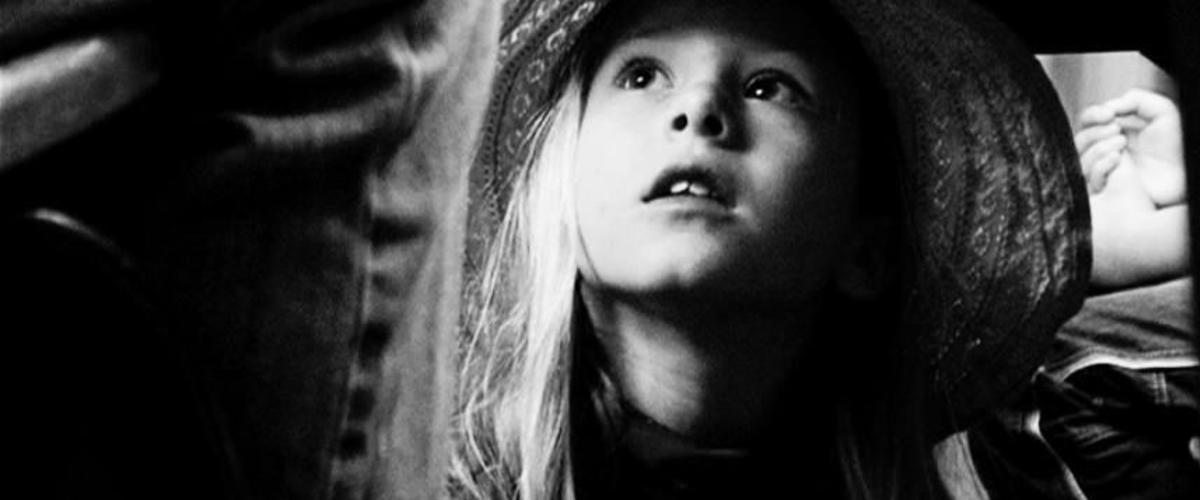
Approaching the Elephant ***1/2
It's a truly old-school documentary, constructed in the manner of a 1960s "direct cinema" or "fly on the wall" feature. It tells its story without music, narration, graphs, or expert witnesses. It's committed to letting you decide what, if anything, it's trying to say, by putting you in the middle of a place, and letting you watch what happens.

In its growing pains you can see a future in which these corporate movies might indeed be art, or at least unique expressions, rather than monotonous quarterly displays of things crashing into other things, with splashes of personality designed to fool people into thinking they're not just widgets stamped out in Marvel's hit factory.

Blackhat ***1/2
Slick and sometimes goofy as it is, "Blackhat" is an odd, fascinating movie: a high-tech action thriller about the human condition. I can think of no better current illustration of the notion that, to quote this site's founder, it's not what a movie is about, it's how it's about it.

Black Mass ***
For most of its running time, it seems to be ramping up to greatness, only to turn around and sit down and brood a bit more. It's frustratingly not-quite-there, and half-assed in some ways. But it has a vision, and it's a powerful one. It's a gangster horror movie. It lingers in the mind.

Black or White **1/2
It's often painful, and not in a good way; it's painful because of the roads it doesn't explore, the shortcuts it takes, and the special pleading it can't stop itself from indulging in.

Black Sea ***
"Black Sea" combines its two genres with such enthusiasm that although the gears don't mesh perfectly and some of the story beats are predictable, the result is so altogether pleasurable that I can't imagine fans of either genre failing to enjoy it.

Danny Collins ***1/2
"Danny Collins," about an old pop star discovering the true meaning of life, is an appealing comedy with an unabashed streak of melodrama, sharp dialogue, and a superb ensemble cast, anchored by a lead performance by Al Pacino in lovable scamp mode.

It works through many of [Spike] Lee's familiar preoccupations (including racism, cultural assimilation, class anxiety, capitalistic exploitation and addiction) in such a blunt way that it might fit nicely on a double bill with "Jungle Fever" or "Summer of Sam."

"Dirty Weekend" is a decent idea for a low-budget movie that never gets past the idea stage, and after a brief while, you may start to question whether it should have been a movie at all, much less a 90-minute one.

One of cinema's finest explorations of an incredibly specific dynamic—that of the cultural giant and the reporter who fantasizes about one day being as great as his subject, and in the same field. What it definitely isn't is a biography of David Foster Wallace, much less a celebration of his work and worldview.
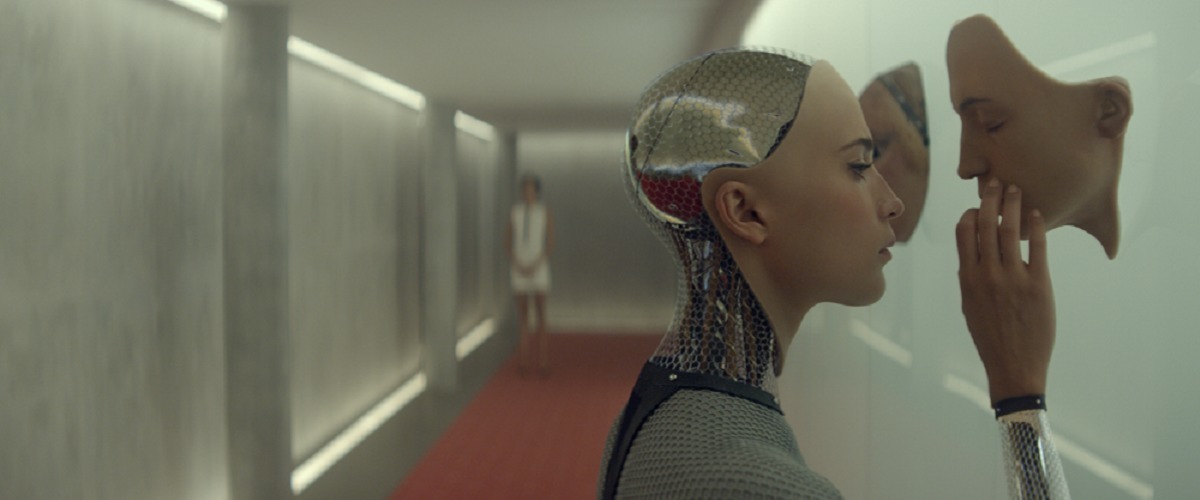
Ex Machina ****
The movie never loses grip on what it's about; this is a rare commercial film in which every scene, sequence, composition and line deepens the screenplay's themes—which means that when the bloody ending arrives, it seems less predictable than inevitable and right, as in myths, legends and Bible stories.

Fantastic Four *1/2
It feels longer than an afternoon spent at the DMV—and at least at the DMV, you can pass the time by people-watching. There are no people to watch in "Fantastic Four," only collections of character traits and attitudes brought fitfully to life by actors who might've mistakenly thought they were hitching a ride on the superhero movie gravy train by signing up for this misfire.

Gabriel ***
"Gabriel" isn't a perfect movie, but it's a great reminder of what movies can do, and used to do often, until American movies decided to concentrate mainly on spectacle and franchise building and leave characterization to TV.

Get Hard **
Much of it plays as though a filmmaker who grew up watching "Stir Crazy" on HBO thought the scene where Richard Pryor taught Gene Wilder to walk and talk Black would be better if it lasted 90 minutes instead of 90 seconds.

Gett, the Trial of Viviane Amsalem ****
Every shot, cut, line, performance, indeed every moment in this feature is perfectly judged, always conveying precisely what it needs to convey in order to define its characters and move the story forward. And yet the result never seems merely neat or efficient.

Good Kill **1/2
"Good Kill" is an intelligent but not terribly effective drama. And its discussion of military ethics, especially with regard to what it means to be able to kill people without physical consequences, is promising, but it does not go far enough.

Horse Money ***1/2
It is named after the poor neighborhood in Lisbon where [Pedro] Costa originally went with 35mm film equipment to make a lush dramatic feature in the 1990s, only to abandon it and shoot the film with a small video camera—a decision that led Costa down the path that eventually developed his unique aesthetic, which is simultaneously gritty and glossy, a look that delves into the emotional essence of experience by bypassing the signifiers of "realism" entirely.

The picture feels like what a critic friend calls a "tax shelter movie": hire a lot of name actors of different generations, put them in a modestly budgeted ensemble movie with interlinked subplots so that everyone gets a "big" moment or two, tie it all together with a Big Idea, and voila: commercial art. That's "Human Capital," a film whose title resonates in all the wrong ways.

Inside Out ****
It avoids a lot of the cliched visuals and storytelling beats that make even the best Pixar movies, and a lot of movies by Pixar's competitors, feel too familiar. The best parts of it feel truly new, even as they channel previous animated classics (including the works of Hayao Miyazaki) and explore situations and feelings that everyone has experienced to some degree.
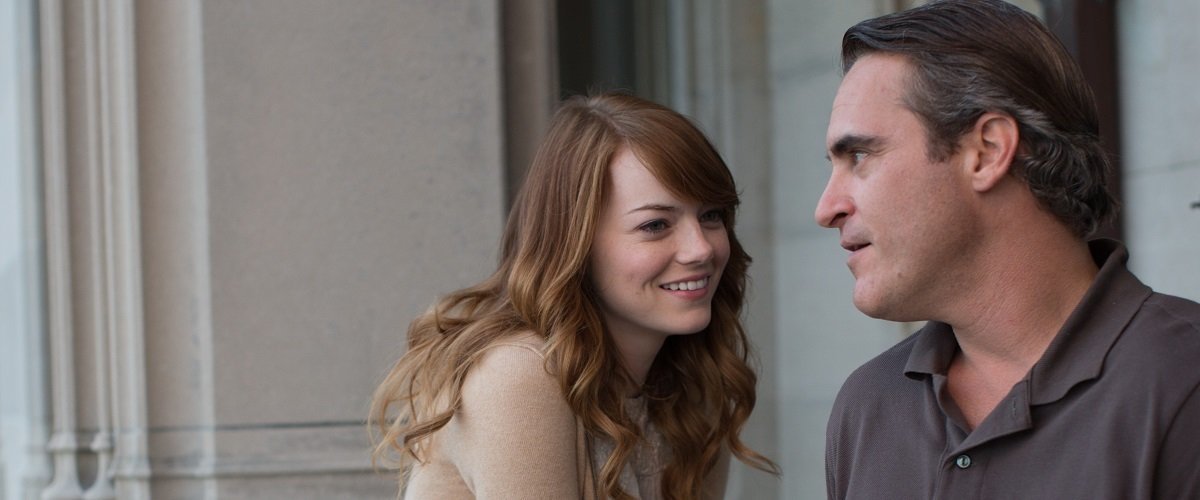
Irrational Man *1/2
It's as if [Woody] Allen is determined to give his most vocal detractors rope with which to hang him. That's his prerogative. But it would have been nice if he'd given everyone a good movie to watch while they braided the noose.

Jauja ***1/2
One the most original and peculiar adventure films in recent memory; it's firmly in the wheelhouse of Argentinian director Lisandro Alonso's previous films ("Los Muertos," "Liverpool"), and your affinity for it will depend mainly on your willingness to roll with its style, tone and pace.

"Jupiter Ascending" is an example of a particularly depressing sort of bad blockbuster: one made by artists that you might not know were artists unless you'd seen their other films. […] Long sections of it feel as though they could have been written and directed by anyone with a pile of money to throw around, and a decade's worth of cliched action-fantasies to ape rather than re-imagine.

Jurassic World ***
The best aspects of the sequel "Jurassic World," in which a hybrid super-predator runs amok in the trouble-plagued theme park, are so very good that they transport you that exhilarating mental space where the series' original director, Steven Spielberg, raised a tentpole way back in 1993. The worst aspects are bad indeed: thin characterizations, a blase attitude toward human-on-animal violence and a weird male-supremacist streak that comes close to sneering at unmarried career women who don't have kids.

Listen to Me Marlon ***1/2
No superlatives can do justice to [Stevan] Riley's editing. His cutting confirms that the filmmaker hasn't merely thought about what Brando's life meant and what his work represented, but has taken the trouble to devise a visual scheme that mimics the way the waking mind jumps instantly between past and present, reality and imagination, within the course of a second or two, so that we really do feel as though we're inside Brando's mind.
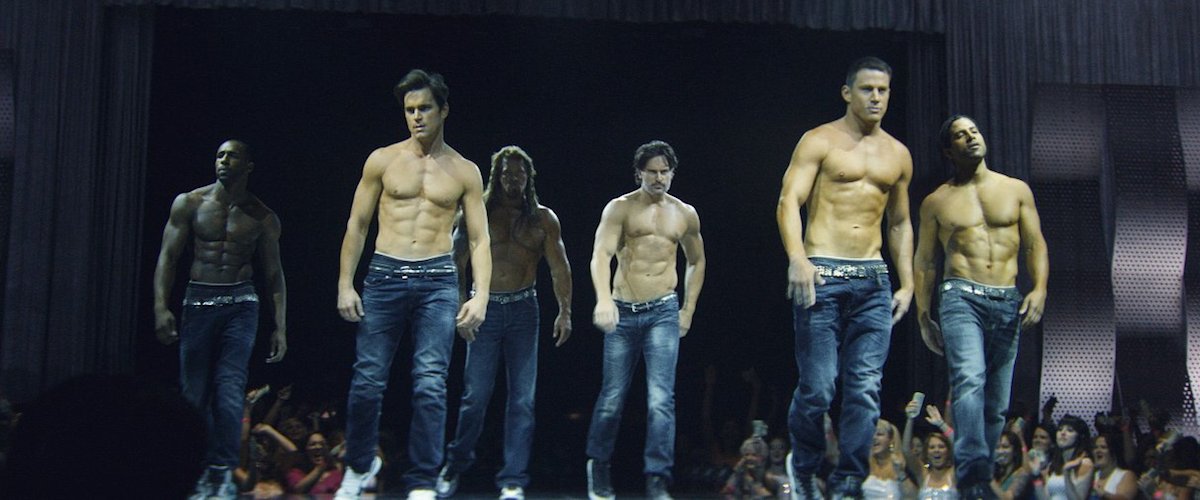
Magic Mike XXL ***
You could rightly describe it as "two hours of Channing Tatum and other hunky guys bonding, flirting with women, and doing bump-and-grind dance routines" and not be wrong, and yet it's made with such aesthetic playfulness that I expect it to generate graduate theses with titles like, "Breakaway Pantomimes: 'Magic Mike' and Commodified Desire."

Although it's been dismissed in some quarters as minor Cronenberg—and criticized for "getting Hollywood wrong," or something like that; as if "Dead Ringers" cared about the fine points of gynecology—it's a sneakily powerful movie, so much so that its conceptual thinness isn't a deal-breaker.

The Martian by ***1/2
I'm making it sound as though "The Martian" is predictable. It is, but that doesn't hurt its effectiveness. The most fascinating thing about the film is how it leans into predictability rather than make a show of fighting it. In the process, comes up with a tone that I don't believe anyone has summoned in this genre, certainly not at this budget level.

Matt Shepard Is a Friend of Mine ****
It is wrenching but never exploitive. It is impressively skeptical of the same mission that it takes on its shoulders: to make something positive from a senseless crime without diminishing its senselessness. This film doesn't just revisit an atrocity, it moves through it, and finds meaning in it.

This is a huge, unwieldy topic. The filmmakers do an admirable job of condensing their information and making it comprehensible. They don't really succeed in unifying it, though, or in making the whole enterprise seem like more than a collection of talking points for people who are mad about climate change deniers, people paid to sow doubt about the damage caused by smoking, and their ilk.

Misery Loves Comedy **1/2
While genial and never dull, the film is all over the place, a classic example of trying to do and say too much.
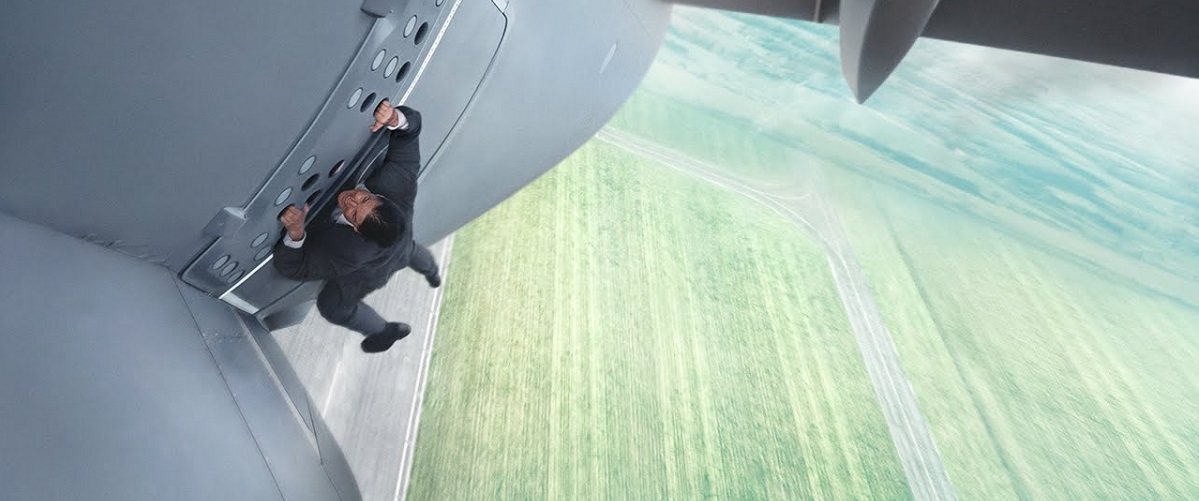
Mission Impossible: Rogue Nation ****
"Rogue Nation" feels like it could’ve been a movie by [Buster] Keaton’s most fervent disciple, Jackie Chan, who gifted the human race with the likes of "Project A" and "Supercop." It has a loose, hurtling quality. Despite all the bone-breaking violence, its touch is light.

Mississippi Grind by ***1/2
This story of two losers gambling their way across America is a nostalgia act in the best way: it brings back aesthetic values that certain American filmmakers, writers and actors of the '70s embodied brilliantly and could showcase on a grand stage, because at that time the cinematic marketplace still allowed small-scaled films about people living small-scaled lives to get national theatrical releases, and serious attention, rather than dumping them to one or two theaters plus DVD or iTunes.

Mistress America ***
[Noah] Baumbach can be a marvelous, unsparing reporter on a certain slice of upper-middle-class to wealthy America, and he brings that skill to bear here in the scenes of Tracy feeling out of her element. The satirical details of college student delusions of grandeur are expertly observed by Baumbach and his co-writer [Greta] Gerwig.

Noble ***
It's one of those movies that can be described as a triumph of the human spirit without any winking whatsoever, because the outlines of the story are true. It doesn't go quite far enough into melodrama to fuse all of its different pieces together into a satisfying whole (more on that in a second) but it's an engrossing film all the same: intelligent, sincere and unabashedly goodhearted.

Peace Officer ***1/2
This film by Brad Barber and Scott Christopherson—a debut feature, remarkably—combines the best elements of old school and new school nonfiction filmmaking. […] This is one of the year’s best films.

Rebels of the Neon God ***1/2
Tsai [Ming-Liang's] most accessible film is more unusual and uncompromising than any you're likely to see this year. [...] This is one of the great modern films about big cities and the mostly unacknowledged psychic toll of living in them.
Ride ***
The film is high-strung, nervous and slightly chilly in the New York scenes, but once the action shifts to the beaches of Venice, it slows down considerably, and fittingly; the rhythm of the waves dictates the pace and color of the movie, and it makes sense to apply the brakes to a story about a woman who's always talking and working and running all over the place and defining and ranking and describing everything in her life.

Runoff ***1/2
As an experience, it's amazing—so unlike most other recent American independent films in its style and mood that if it weren't for the present-day signifiers (cars, haircuts, clothes), you'd think it had been time-warped in from the American New Wave era of the 1970s, when directors prized characterization, cultural details and a powerful sense of place, and enclosed all it within carefully composed frames that allowed people to just be, and the audience to just look and listen.

7 Chinese Brothers **1/2
[Jason] Schwartzman's intelligent eyes and deadpan reactions make him ideal for playing a cynical heel in a William Holden-Fred MacMurray vein, even as his slight frame and high tenor voice guarantee that he can't play guys as tough and fearsome as those actors often did, except as a joke. There's something genuinely special about him. That specialness goes a long way towards making this slightly-better-than-OK movie feel special, too.

For Pierce Brosnan completists only—go ahead, raise your hands if you're one of them, this is a safe space—"Some Kind of Beautiful" is a handsomely produced movie full of likable actors that conjures nothing but tedium. A couple of hours of air conditioning, nothing more.

Tangerine ***
It creates its own world, one with different definitions of "normal" or "acceptable" than Hollywood or even mainstream indie cinema usually offers, and the film is most thrilling for that reason.

3 1/2 Minutes, Ten Bullets ***
"3 1/2 Minutes, Ten Bullets" doesn't move or look like most documentaries you've seen. The movie's meditative quality makes you feel for everyone involved in this tragedy—even Dunn, who seems very much a prisoner of fear and anger. Where a lot of documentaries would try to stir outrage, this one just leaves you shaking your head.

Time Out of Mind ***1/2
[Richard] Gere's performance is almost entirely reactive, and this makes you appreciate his charisma all the more. There aren't many actors who can sustain a whole film just by sitting silently and thinking and occasionally saying something simple like "Yes" or "I can't remember." Gere is one of them.

Tomorrowland ***
There are moments where people exist simultaneously in two time periods while walking, running, falling or driving, and a scene near the end that's so unabashedly sentimental, yet so emotionally complex and confounding, that I can honestly say I've never seen anything like it.
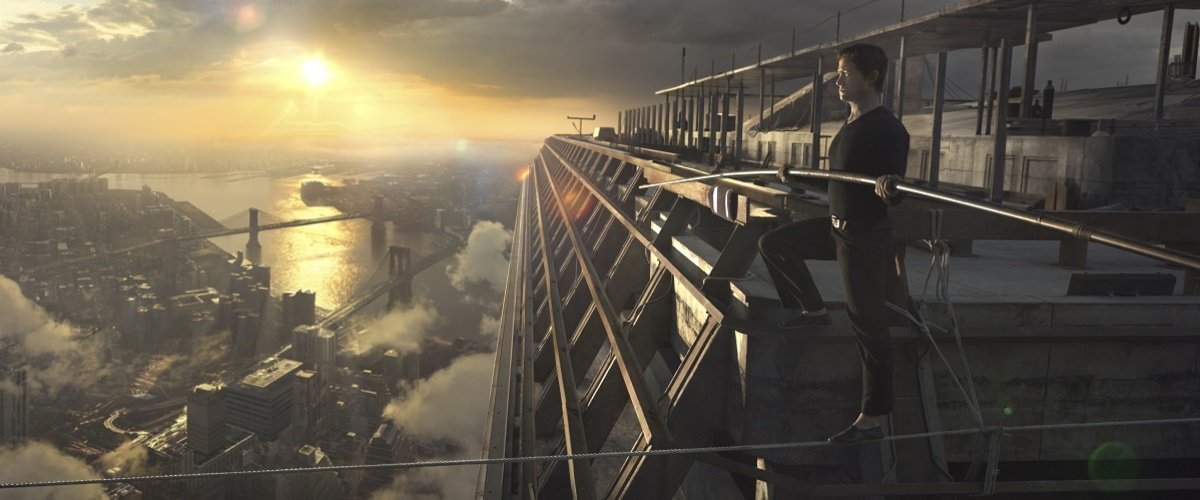
The Walk **1/2
In terms of sheer directorial craft, "The Walk" is masterful, but as storytelling, it's a near-disaster. That's too bad, because nobody does visceral like Robert Zemeckis. Even in his less-than-great films, there are always two or three sequences that dazzle the viewer […] The final half-hour of "The Walk" is on that level.

"The Water Diviner" seems conflicted. Crowe's staging of violence alternates between detached scrutiny of unforgivable suffering and a video-game amazement at the harm weapons inflict on flesh. The film enfolds many conflicts within its handsome widescreen canvas […] but these all take a backseat to the struggle between "War is hell" and "War is awesome." The battle ends in stalemate. It should have been no contest.

White God ***1/2
Owing less to contemporary Hollywood films than to broad-brushstrokes silent-era melodramas, this is an image-and-sound driven example of purely cinematic storytelling. Throughout much of its running time, it achieves a dreamlike, sometimes nightmarish power.
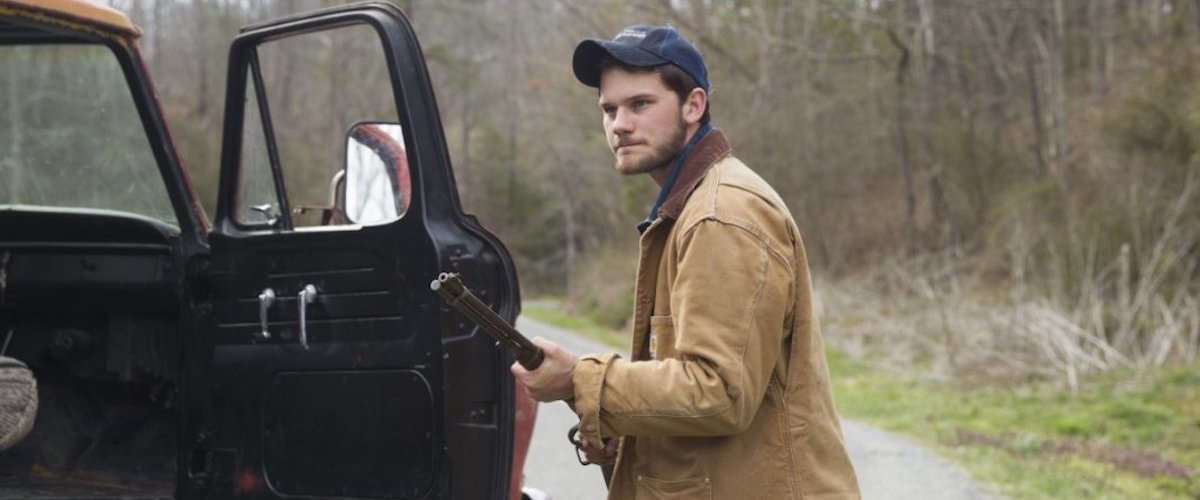
The World Made Straight **1/2
The movie never entirely rises to the height of its ambitions, though: there are moments when you can practically hear it straining to impart significance to what is, in the end, a fairly standard sensitive-young-criminal-in-over-his-head story.

Z for Zachariah **1/2
"Z for Zachariah" is ultimately too dramatically slight and brief for its ambitions, despite its sometimes labored myth-making script and visuals. And it's ultimately unwilling to truly commit to the idea of life during the end of the world as we know it.
Chaz is the CEO of several Ebert enterprises, including the President of The Ebert Company Ltd, and of Ebert Digital LLC, Publisher of RogerEbert.com, President of Ebert Productions and Chairman of the Board of The Roger and Chaz Ebert Foundation, and Co-Founder and Producer of Ebertfest, the film festival now in its 24th year.





